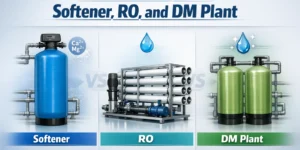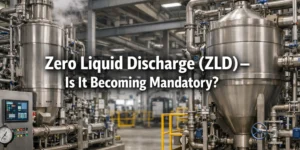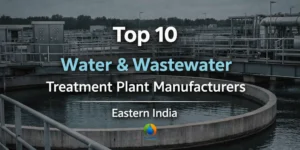How Smart Cities Will Manage Their Water Resources
2025-11-05 | by Joydip Manna
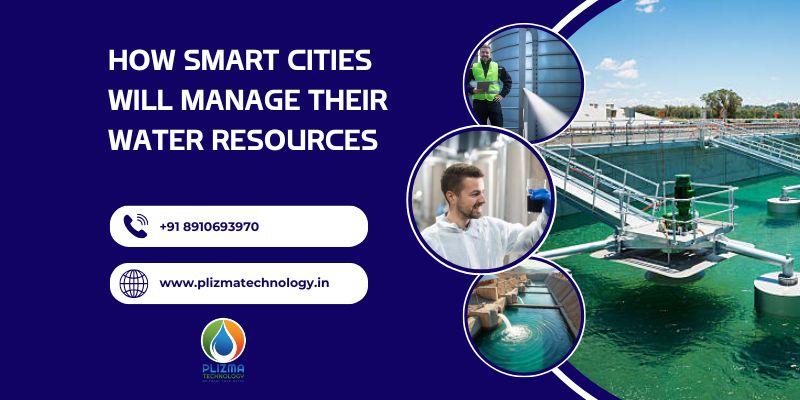
As the urban population of the world is growing exponentially, the cities are rising to the challenge of providing clean, safe, and sustainable water to millions of urban dwellers. Aging and obsolete water infrastructure is not equipped to manage increasing pressures in the wake of climate change, pollution, and water shortage. The municipalities are meeting the challenge by embracing new technologies that utilize data, sensors, and automation in designing smart and more robust water networks. Another issue that the municipalities need to come up with a solution to is the problem of sewage. The problem can be solved through the use of the best sewerage water treatment provider.
In a smart city, water is monitored, metered, and controlled in detail, drop by drop. Sophisticated leak detection, real-time in-situ quality monitoring, and cutting-edge predictive analytics collaborate to predict demand and prevent shortages ahead of time. Technology is changing the manner in which our greatest asset in the city is being managed. Balancing innovation and sustainability with each other in absolute harmony, smart cities not only provide perfect water distribution but also establish perpetual environmental balance and resistance to worldwide water challenges.
Tips That Smart Cities Can Use to Manage Their Water Resource
With urbanization on the cards and higher water demands, efficient management of the resource is at the very top of everyone’s list everywhere in the world. Analytics and sensors are being deployed by smart cities to efficiently manage water with a view to conserving it in the long run, improve quality, and create sustainable networks.
• Smart water infrastructure
Smart cities are replacing vintage pipes, pumps, and reservoirs with complete confidence by embracing IoT (Internet of Things) sensors. These advanced sensors monitor water movement, pressure, and quality round the clock and offer real-time information, which helps city administrators identify leaks, bursts, or contamination in good time. Such an early action cost-effectively keeps massive losses at bay and cuts repair costs significantly.
• Waste water treatment and recycling
Smart cities view wastewater as an asset and not as a liability. High-tech treatment plants are dependent on automating wastewater treatment for irrigation, industrial, and even drinking supply after further refinement. Advanced monitoring ensures that the reclaimed water adheres to high standards of safety each time, reducing dependence on freshwater sources by far. Leading sewage treatment plant manufacturers assist in treating and recycling sewage water for useful purposes.
• Smart metering for consumers
Smart water meters provide immediate usage information to customers and utilities too. Tenants can see usage at a glance with basic smartphone apps, establish usage limits, and be notified the moment there is any abnormal behavior, i.e., leaks in the home. Such openness not just encourages greener usage but also gets communities water-aware and proactive towards water saving.
• Data-driven decision making
Centralized systems collect and analyze information from the entire water network with efficiency. Advanced AI and machine learning enable the systems to determine leading trends, forecast potential shortfalls, and manage supply accordingly. For example, with very good prediction of rainfall and peak demand, cities can forecast and redistribute water supply in advance to provide an equilibrated supply and avoid any imminent threat of shortage.
• Sustainability and climate resilience
Smart water management is the magic that will propel a city ahead to become drought-, flood-, and climate-resilient. Strong monitoring and forecasting modeling enable cities to react quicker and better in crises. All this is at the heart of moving towards circular, sustainable water economies where every drop is metered, valued, and reused.
Conclusion
Smarter cities will exploit digital technology to monitor every drop of water, utilize it efficiently, and recharge it in a responsible manner. If there is the right infrastructure and data-driven intelligence in a city, it can put this prized resource in a tight lock, maintaining environmental harmony and human welfare for generations to come.
Direction: Get Here
RECENT BLOG
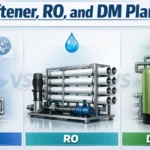
Difference Between Softener, RO, and DM Plant
2026-02-25

Zero Liquid Discharge (ZLD) – Is It Becoming Mandatory?
2026-02-20
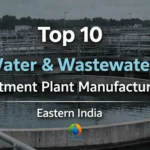
Top 10 Water And Wastewater Treatmant Plant Manufacturer in Eastern India
2026-02-12

What Is an Effluent Treatment Plant (ETP)? A Complete Guide
2026-02-10



